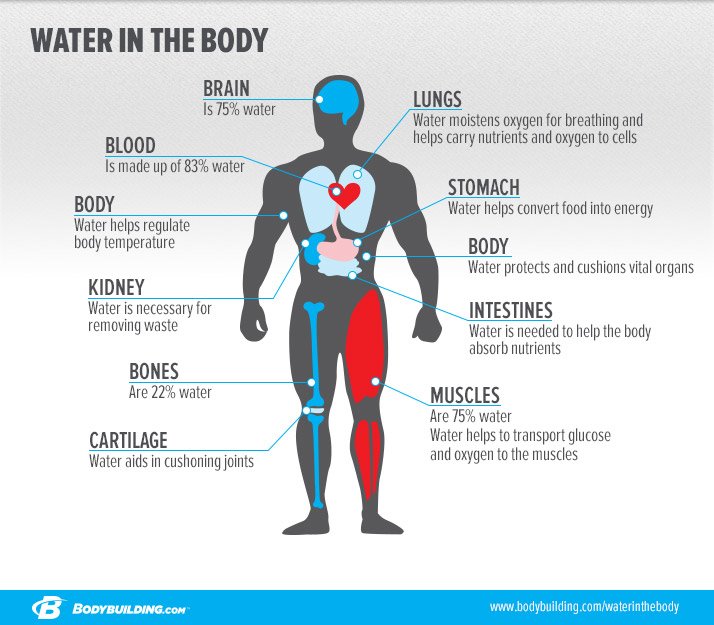3 Ways Drinking Water Can Improve Your Life
We are all searching for ways to improve our lives and be more successful, and chances are if you are looking to improve your life, you are looking to be more healthy, and if you want to be more healthy, you need to drink more water! Many of us have our own drinks of choice that give us some fulfillment, however the benefits we would receive if we drank more water are exponential. I myself, am an athlete and can personally vouch for the positive affects on my life when I am disciplined enough to only drink water. But don't just take my advice, we are going to look at 3 ways in which drinking water can improve your life.
 |
| Here are some ways water is important to the human body according to bodybuilding.com |
Water can curb your appetite
Many people can mistake their bodies signs of thirst, for hunger. According to www.livesstrong.com when we become dehydrated, we also begin to feel hungry. So when you get that late night craving for Doritos, or your favorite guilty pleasure, try drinking water because you may just be dehydrated instead of hungry! This is happening because our body is mistaking our need for water, as hunger. One option I propose is next time you think you are hungry drink a glass of water, wait ten minutes and see if your hunger has dissipated. ultimately drinking more water instead of unnecessary meals will make you a healthier, better, you!
Water can make you happier
Water can lower risk of cancer
I believe this information is valuable to our American society in that we are so caught up in how to improve our lives, but the simplest answer is right in-front of us every day. Drinking water. This knowledge should benefit my readers in that they now know several steps to take to improve their life just from hydration.
